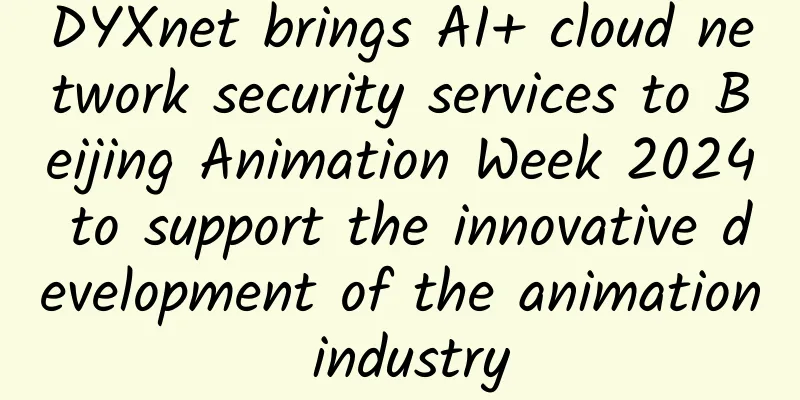Deloitte: 86% of network executives said 5G and Wi-Fi 6 will change the industry within 3 years

|
Deloitte's "Study of Advanced Wireless Adoption" found that network executives generally believe that advanced wireless will transform their organizations and industries within three years. To understand how enterprises are adopting advanced wireless technologies such as 5G and Wi-Fi 6, including motivations/challenges and preferences, Deloitte reports that its recent Advanced Wireless Adoption Study surveyed 415 U.S. networking executives in early Q1. The executives surveyed were responsible for connectivity at organizations that were adopting 5G/Wi-Fi 6 or planned to adopt either technology within the next three years. The Deloitte report shows that 86% of the network executives surveyed said that advanced wireless technology will change their business within three years, and 79% of them hold the same view about their industry. In addition, 76% of executives said they believe 5G will become a "critical" network technology for their company within three years. 70% said the same about Wi-Fi 6. According to the survey results, over the next three years, enterprises are expected to spend an average of $115.7 million on wireless technology. 87% of executives surveyed said they believe advanced wireless technology can create a significant competitive advantage for their company, while 56% see security as the biggest challenge to adopting advanced wireless technology. The survey is premised on a changing network environment, with advanced wireless technology becoming increasingly important in strategy, as respondents said they expect their use of 5G and Wi-Fi 6 to more than double over the next three years, and their use of 4G/Long Evolution (LTE) and Wi-Fi (5 and below) to decrease, but not disappear. Deloitte said 57% of survey respondents are currently adopting 5G and/or Wi-Fi 6 (including planning, testing and piloting). Another 37% of companies plan to adopt these technologies in the next year. More than 9 out of 10 executives surveyed believe that advanced wireless technologies are "very" or "critical" to their business success today. 4G/LTE and current (or earlier) versions of Wi-Fi are considered the most valuable wireless technologies. However, executives believe that three years from now, 5G (76%) and Wi-Fi 6 (70%) will be among the top three critical wireless technologies. “Our survey confirms that network executives are ‘all in’ when it comes to adopting newer wireless technologies,” said Dan Littmann, technology, media and telecommunications leader at Deloitte Consulting LLP. “Respondents deeply view advanced wireless technologies as a key enabler of AI-based, cloud and analytics-based innovation. The COVID-19 pandemic itself may even accelerate the need for automation to enable social distancing in the workplace and reliance on more robust network infrastructure.” Deloitte said that survey respondents believe that adopting advanced wireless networking technologies such as 5G and Wi-Fi 6 is a strategic necessity and is seen as a "force multiplier" that can enable other emerging technologies. 87% of respondents believe that their companies can use advanced wireless technologies to create significant competitive advantages. For eight in ten respondents, advanced wireless connectivity is either ‘very’ or ‘extremely’ important to their organization’s ability to fully leverage AI, edge computing, IoT, cloud and big data analytics. But it’s worth noting that not all respondents believe their current networks are capable of innovation. While more than eight in ten network executives surveyed are ‘satisfied’ or ‘extremely satisfied’ with the performance characteristics of their current wireless networks, 57% believe their company’s current network infrastructure prevents them from addressing the innovative use cases they hope to target. “Innovative technologies such as artificial intelligence, edge computing and cloud computing are no longer just nice-to-haves, but must-haves for businesses to truly compete in today’s fast-paced and uncertain world,” said Jack Fritz, technology, media and telecommunications leader at Deloitte Consulting LLP. “As adoption of advanced wireless technologies evolves from pilots to full-scale adoption, network executives who understand how to use them to unlock the full potential of these emerging technologies will ultimately prevail.” In compiling the findings, Deloitte noted that IT roles - from CIOs and CTOs to managers - are seen as driving adoption of next-generation wireless networks, but business and operations leaders also play a significant role. However, researchers said use case priorities for advanced networking technologies tend to vary by industry and position. Deloitte reports that the vast majority of surveyed enterprises are targeting a mix of wireless network scenarios, including indoor and outdoor use; and fixed and mobile devices. IT executives appear to be very focused on simplifying employee work lives through workplace communications, IT management, and advanced collaboration tools, which were cited as the top three use cases for employee connectivity. Conversely, for line-of-business managers, the top two use cases for employee connectivity were IT management and automation, indicating a strong need for efficiency Additionally, survey respondents said they believe performance improvements make advanced wireless attractive for high-bandwidth, time-sensitive needs. The top three benefits adopters see from switching to advanced wireless networks are increased efficiency, improved security, and leveraging new technologies such as edge computing, big data analytics, and artificial intelligence, according to the Deloitte report. Respondents ranked data speed (63%), reliability and resilience (62%), and network and data security (61%) as the most important factors for advanced wireless success. Additionally, the data shows that 5G and Wi-Fi 6 are being adopted in parallel, with 76% of executives believing that 5G will be a "critical" network technology for their company in three years, and 70% saying the same about Wi-Fi 6. In fact, Deloitte said 62% of respondents said they plan to adopt both technologies within the next year; and 93% said they plan to adopt both technologies together within the next three years. |
<<: 5G has not been affected by the COVID-19 pandemic, and commercial deployment is accelerating
>>: 5G will change society in the future: eight application scenarios
Recommend
5G bidding is finalized, and competition is changing again
[[417538]] 2021 is the third year of 5G commercia...
What will the Internet look like in 10 years?
The Internet has evolved tremendously over the pa...
TmhHost: US AS9929 line from 30 yuan/month, US CN2 GIA/Hong Kong CTG monthly payment from 40 yuan
TmhHost is a Chinese hosting company founded in 2...
Highlights of Bluetooth Mesh Technology
Bluetooth is one of the most dominant low-power w...
What is the difference between China Telecom’s quantum encryption, quantum speed reading, and quantum energy bar?
[[377345]] Some time ago, China Telecom launched ...
Have you learned how to build the CC2530 development environment?
1. Introduction to IAR ZigBee Wireless Network No...
What are the options for 4-port/8-port/16-port/24-port Gigabit POE switches?
POE power supply technology has become the darlin...
10 Ways to Improve Your Home WiFi
Guo Shenghua, the godfather of Chinese hackers an...
Three tips to get a good start on AIOps implementation
[[386134]] Faced with fierce market competition, ...
The second half of the 5G era begins
On June 6, 2019, China officially issued 5G licen...
Huawei's Song Xiaodi: Breaking five misconceptions and accelerating green development
At the Huawei Day0 Lighting Up the Future Summit ...
Ubuntu 18.04 changes the IP address
My memory is getting worse and worse, just record...
It’s time to launch 5G applications
Recently, ten departments including the Ministry ...
A brief history of the development of the HTTP protocol and analysis of common interview questions
[[375750]] This article is reprinted from WeChat ...
Make the network run autonomously like a driverless car
[51CTO.com original article] Juniper Networks Glo...








![[Black Friday] edgeNAT: 20% off for monthly VPS and 30% off for annual VPS, top up 500 yuan and get 100 yuan free](/upload/images/67cac24339ff5.webp)
